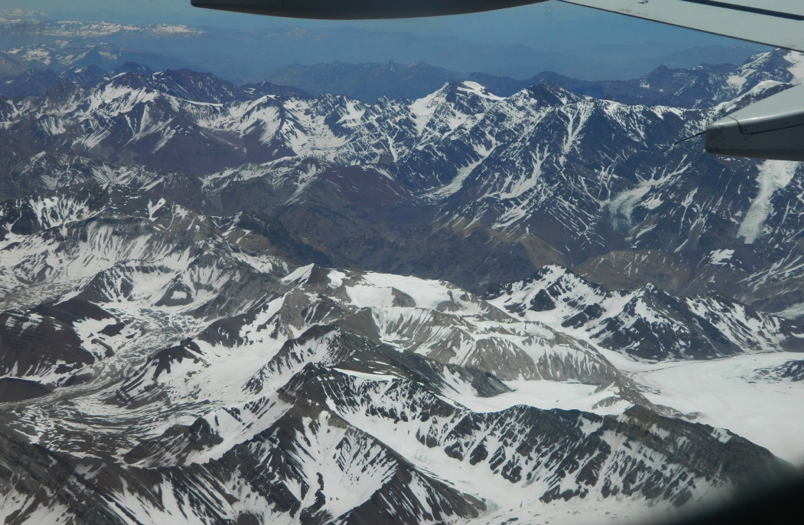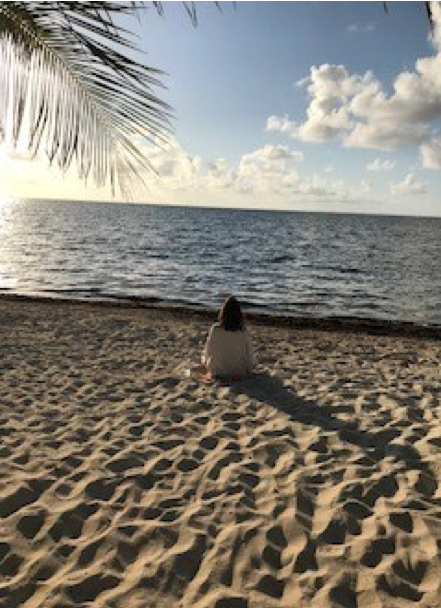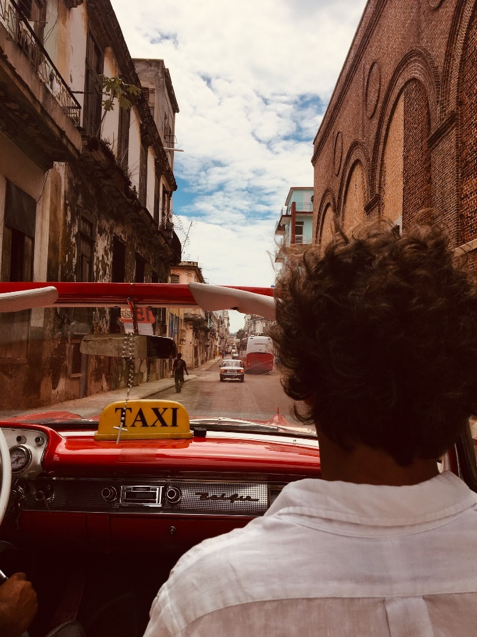The Health Benefits of Travel

Epilepsy News From: Saturday, January 12, 2019
The Benefits of Travel, Near or Far
The word “travel” means different things to each person. Travel in general refers to spending time seeing and doing new things in a new place with an open mind. The distance, near or far, is not important. Allowing yourself to fully dive into all that a new place has to offer is key to having a great travel experience.
People who travel often share stories of adventure, opportunities to learn about new places, and the experience of immersing themselves in a new culture. But is there more to travel than just the thrill of discovery? Research on the health benefits of travel has shown that travel can benefit mental, emotional, and physical health.
Read on to learn about ways travel (near or far) can give your health a boost, enjoy the beautiful photographs by contributor Bella Armitage, and find help planning your next adventure!

Improves your Mood
The anticipation and planning that comes with travel has been shown to positively affect a person’s mood. Increasing happiness can result from something as simple as talking with friends or family about upcoming travel plans.
Travel plans do not have to include a trek around the world. For some people, travel may mean a train ride to the city or a car ride over state lines to a summer cabin or a weekend visit to an old friend’s home.
Travel and vacation time are something to look forward to no matter how near or far you may be from home. The destination is not important. Planning the journey and immersing yourself in the experience are key to finding benefit.
Research supports the fact that money spent on “doing” (experiences) provides more happiness than money spent on “having” (material goods). Cornell University Psychology professor Dr. Thomas Gilovich performed studies focused on examining this. He concluded that people were ultimately happier having experiences, not things.
The positive feelings that come from traveling don’t end when your trip does. Vacation memories captured in photos and experiences shared with others bring happiness long after you have returned to your home!

Travel Can Keep You Fit
Often when people imagine taking a trip, thoughts of extended periods of time sitting in a plane, train, boat, car or bus come to mind. However, travel gives you many opportunities to be active! A walk on the beach, a hike on a glacier, a paddle or swim in new waters, a camel ride in the desert, a walking tour in a new city, or an afternoon bike ride in the countryside are all ways to challenge your muscles and keep you fit while traveling.
With proper planning, almost anything is possible. Often being in a new place spurs us to try something new. You may even return home with a passion for a new activity you have never tried before!

Lower Your Risk of Heart Disease
Traveling and time away from everyday stressors has also been shown to have significant benefits on the heart.
- The Framingham Heart study, a landmark cardiovascular health study, found that men who did not take a vacation for several years were 30% more likely to have heart attacks compared to men who did take time away to vacation.
- Further evidence comes from a study of 749 women followed for 20 years in the Framingham Heart Study. Researchers found that women who took one vacation every six years were almost 8 times more likely to have a heart attack than women who took at least two vacations each year.
- Another large study, The Multiple Risk Factor Intervention Trial for the Prevention of Coronary Heart Disease, monitored the health of 12,000 men at risk for coronary heart disease over nine years. This research study found that middle aged men at high risk for heart disease who made time for vacations each year were 32% less likely to die from a heart related disease. These men were also found to have a lower risk of death from all other causes.
Positive effects of a vacation that benefit your heart include providing you with a chance to reset good habits like kicking off a regular exercise routine, eating healthy meals, and ensuring you are getting plenty of restful sleep. Habits that are excellent for both heart and brain health! Remember to bring these refreshed habits home with you.
Reduce Stress
A 2018 Work and Well Being survey done by the American Psychological Association concluded that vacations reduce stress by removing people from activities and environments that tend to be sources of stress.
In their report, they share that more than half of working adults reported time away from work was enjoyable. They noted the benefits of vacationing include relaxing, sleeping well, and engaging in interesting or challenging activities.
When people think about time away from daily routines and stressors, they remember a general sense of well-being. Over half of the people surveyed reported improved mood, energy, and motivation. They said they felt less stressed when they returned to work.
Making time to relax is important. Travel is one way to take yourself physically and emotionally on a journey that can benefit your health.

Enhancing Creativity
Psychologists and neuroscientists have been studying creativity for decades. The human brain can adapt to new situations and changes in the environment. This brain flexibility, called neuroplasticity, allows your neurons to form new connections. Your brain networks activate as you experience new things, leading to more creative thinking. Research studies suggest that traveling can also boost your creativity by bringing about positive thoughts, leading to a happier and more inspired you.
- Traveling provides an opportunity to expand your mind through new – and sometimes unexpected – sights, sounds, tastes and sensations.
- New experiences can move your thinking far away from day-to-day routines or challenges that you face at home.
- Vacations can bring a fresh perspective, allowing you to engage in more creative thinking.
Travel to a new country may not be possible. Your creativity can be sparked by a trip to a new city or even taking a ride to a new neighborhood in your city or town and exploring indoor and outdoor spaces, local music, shopping or cuisines. Stretch your creativity by trying something new, someplace new.

Improves Self-awareness and Self-confidence
Self-awareness and self-confidence play a role in our day-to-day experiences. Building awareness and confidence are important for mental and emotional health. A new adventure, near or far, challenges you to build self-awareness and expand self-confidence by gaining new knowledge.
- Psychology research tells us that the ability to engage with people from different backgrounds and reach outside your social comfort zone can help you build self-awareness.
- When you travel, you are often faced with many unknowns. As you go new places and meet people, your sense of confidence grows. You gain a better understanding of who you are and all the things you are capable of.
- Stepping out of your own environment and typical daily routines will allow you to challenge yourself. Whether it is the courage to strike up a conversation with a stranger (in a new language!), getting yourself on the correct train, figuring out a new currency, or hiking up a mountain, travel will expand your horizons and show you just how amazing you and the world around you are.

Preparing for Travel
Many people look forward to traveling to a new place or returning to someplace familiar. It is important to plan, in advance, how you will manage seizures while traveling. Depending on your seizure type, here are ways to prepare for travel:
- Know the regulations for bringing medications, such as bringing liquid medicines on a plane.
- Depending on the type of travel and length of your trip, you may need a note from your doctor about carrying medicines with you.
- Bring all your daily seizure medications and any prescribed rescue medications with you and available during your flight.
- Share your seizure response plan with those traveling with you. Make it accessible to others by carrying a copy with you (paper or digital) if you are traveling alone.
- Talk with your doctor about adjusting your medicine schedule in different time zones.
- Make plans, in advance, to ensure you get enough sleep. If you know it is impossible for you to rest on a plane, avoid long or overnight flights. Or speak with your doctor about a sleep medication to help you get enough rest while you travel.
- Prepare ahead with the appropriate travel insurance in case you need medical care while traveling.
We hope you will take the time to travel, near or far, and share your adventures. You can inspire others on their journey to building strong emotional and physical health.
Authored by
Elaine Kiriakopoulos MD, MSc
Reviewed by
Joseph I. Sirven MD
Reviewed Date
Saturday, January 12, 2019
